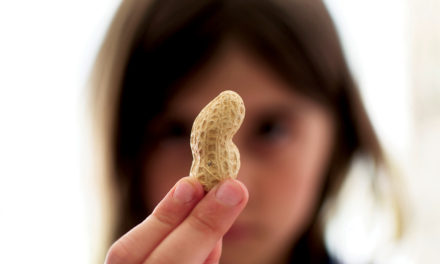Societal expectations of girls and women can create landmines for parents raising daughters. You need a game plan to arm them with self-compassion and self-worth.
Aviva Meyrowitz was taken aback a few years ago when her daughter, Lilah, then barely a toddler, received an outfit for her birthday that seemed more appropriate for a nightclub than the playground. “It was kind of a mini-version of something I might not be super happy she was wearing when she was older,” recalls the 35-year-old mother of two from Doylestown, Pa. “Needless to say, I donated it.”
Her experience is one many moms can relate to. Parents are up against a constant barrage of influencers—including toys, TV, music, and make-up marketed to girls from the time they are old enough to crawl—that rarely seem to have girls’ best interests at heart. It’s no one assailant a parent can defeat or avoid, either. It’s a constant thrum of images and voices, all of which can lead a girl to believe her value hinges on her ability to look and act the part.
To help parents, Real Woman took a hard look at raising a daughter today, trying to avoid traps and find smart approaches to root girls with self-compassion and to believe in their own value—even when they don’t match up to society’s ideal.
Strength in Self
No matter how committed parents may be to shielding their daughter from less-than-empowering influences, chances are they’re going to encounter them, sometimes in the places and moments they’d least expect. Chicago mom Jodi Norgaard remembers shopping at a local toy store with her 9-year-old daughter, Grace, when one particular doll caught her eye. “She had a super-short skirt, high heels, big boobs, a crop top, belly button ring, big hair, lots of make-up, and her name was Lovely Lola,” Norgaard says. “And I thought, Oh my gosh. There’s not one parent out there who wants their daughter to look like Lovely Lola. I just hated it. It just hit me so deep and so strong.”
Sometimes the message is delivered more subtly but still intones the same meaning. You’ll be flipping through People and read a description of an actress as “a perfect size zero,” or you’ll notice that the Disney princesses have the average waist size of an inchworm.
“From a very young age, girls get a conflicting message that we are supposed to be smart, but we are also equally supposed to be pretty,” says psychotherapist Eliza Kingsford, MA, LPC, executive director of Wellspring health and wellness camps. “And pretty looks very thin—sometimes voluptuous if you are looking at Barbie, and sometimes not if you are looking at the catwalk—but always very thin. So it becomes a pursuit of the thin ideal.”
From Cinderella’s 17-inch waist in this spring’s Disney blockbuster to magazine after magazine promising the path to perfect abs, the pressure to fit the mold can be suffocating, setting the stage for stress, anxiety, depression, and a host of subsequent unhealthy coping mechanisms like eating disorders or cutting. “The media hype toward perfection—physical, emotional, financial—creates a competition that can never be won,” says nationally recognized family and child development expert Gail Gross, Ph.D., Ed.D. “And as young women strive for each momentary high, they find that success still leaves them stressed and unhappy inside.”
How can parents help their daughters avoid the pull of societal pressures and, instead, stay strong and true to themselves? It’s as simple and as challenging as instilling a sense of self-compassion and self-worth, experts say.
Self-compassion—or the ability to accept your imperfections with kindness—is the opposite of self-criticism. Studies are increasingly pointing to the ability of self-compassion to inoculate young women against anxiety, depression, shame, and stress. In their place, self-compassion instills happiness, optimism, resiliency, and life satisfaction. Given the ups and downs of everyday life, self-compassion has an edge over self-esteem, too.
“It may actually be more important for young women to learn how to accept and cope with distress and disappointments with a kind, compassionate attitude, rather than focusing solely on boosting their self-esteem—that is, trying to see themselves in a positive light,” says Allison Kelly, Ph.D., assistant professor at the University of Waterloo. “One of the problems with self-esteem is it hinges on viewing ourselves as successful, attractive, and superior to others. But what happens when we encounter setbacks or failures? While it might be helpful to focus on the positive aspects of ourselves, it is beneficial to accept the parts we don’t like and recognize that it is OK to be imperfect.”
Self-compassion recognizes our imperfections as part of our shared human experience.

Model Behavior
Instilling a sense of self-worth and self-compassion in your daughter begins with you. Or, as Dr. Gross puts it: “You have to be what you want to see.”
The owner of Lights, Camera, Acting! in Doylestown, Pa., Meyrowitz is proud to offer her daughters an up-close-and-personal example of a woman who followed her dreams and started her own business. “It’s important for girls to see women in leadership roles so they know that truly anything is possible,” she says. Lori Arnold, a Philadelphia-based architectural conservator, agrees. During a recent business trip to Alaska, she brought her 8-year-old daughter, Nico, to watch her work and expose her to outdoor activities like fishing. “I think it is important that she learns them, too,” Arnold says. “I don’t want her to think there are things that men do that women don’t.”
However, just as important as modeling success is establishing an ability to accept imperfections and limitations. This means squelching the scalding self-talk, especially around your kids. Once you develop an ear for it, you might be surprised at the amount of self-criticism that escapes your mouth and creeps into your daughter’s mind. “I work out regularly because I believe it’s good for my mind and body,” says Kingsford. “But I see many mothers in the locker rooms scrutinizing themselves and pinching their bodies. Your daughters are watching, absorbing your comments. Never criticize yourself in front of your child.”
Instead of beating yourself up, try and view your imperfections with the tenderness you would the flaws of a friend. It will come naturally to you and your daughter over time. “It’s an effort to change the way we talk to ourselves,” Kingsford says. “If you are leading by example, your children will learn it is not a part of your household or your culture to degrade themselves.”
Also be sure to treat your daughter with compassion, too, adds Dr. Kelly. “Research shows that self-compassion is easier for people who recall their parents being warm, compassionate, and reassuring toward them,” she says. “It will teach kids to do this for themselves as they get older—they will have emotional memories to draw on of parents being reassuring during difficult times.”
Extending that kindness outside the family, in turn, multiplies the goodwill girls feel in their lives. By voicing the positives about the people around us, the capacity for appreciation of others, and eventually ourselves, grows, Kingsford says. That’s not an endorsement for sugarcoating it, though. If a friend is acting badly, it’s OK for you and your child to acknowledge it with humanity and empathy. This teaching moment can help your daughter realize that perfection, for everyone, is elusive.
“Self-compassion recognizes our imperfections as part of our shared human experience,” explains Kristin Neff, Ph.D., author of Self-Compassion: Stop Beating Yourself Up and Leave Insecurity Behind. “Oftentimes when we fail, we have this sense that something has gone wrong and that everyone else in the world is living perfectly happy lives while we’re falling on our face. It’s illogical. But self-compassion connects us to other people. It’s not just me; life is tough for everyone. That’s what separates self-compassion from self-pity, which says it’s all about me.”
In fact, self-compassion is linked with resilience and motivation in the face of all sorts of setbacks. Even though Dr. Kelly’s daughter is barely a year old, she is already mindful that rescuing her from every mishap won’t do her any favors. “I let her stumble and struggle sometimes, then give her a big hug afterward, and put her down to get back at whatever she was trying to do,” she says. “For our girls to learn self-compassion, they have to understand that failure and disappointment are a normal part of life.”
And while it may be difficult to watch, allowing your daughter to feel and acknowledge the pain of, say, a fight with a friend or a break-up is healthier over the long term than trying to stifle those hurts. Learning to process her feelings and emotional discomfort through positive channels like talking, journaling, or running equips her with healthy tools for coping with future disappointments.
If your daughter is trying to clear a hurdle and needs help, don’t be afraid to offer guidance, experts advise. If she is struggling with a certain subject in school, for example, or feels unhappy because she is at an unhealthy weight, ask how you can help. But don’t miss the forest for the trees: Perfection is not the goal. “You want her to feel unconditionally worthy,” Dr. Neff says, “to do the best she can so she can be healthy and thrive.”
In Meyrowitz’s life, acting has been a source of strength. Through her studio, she aims to offer students similar lessons in communication and teamwork to build their confidence. Such skills, she hopes, will equip girls—her daughters included—to soar beyond society’s limits and into lives of their own making. “Whether my daughters choose to be homemakers, professional musicians, CEOs, teachers, or anything else,” she says, “the most important thing is for them to be happy with what they’re doing.”






